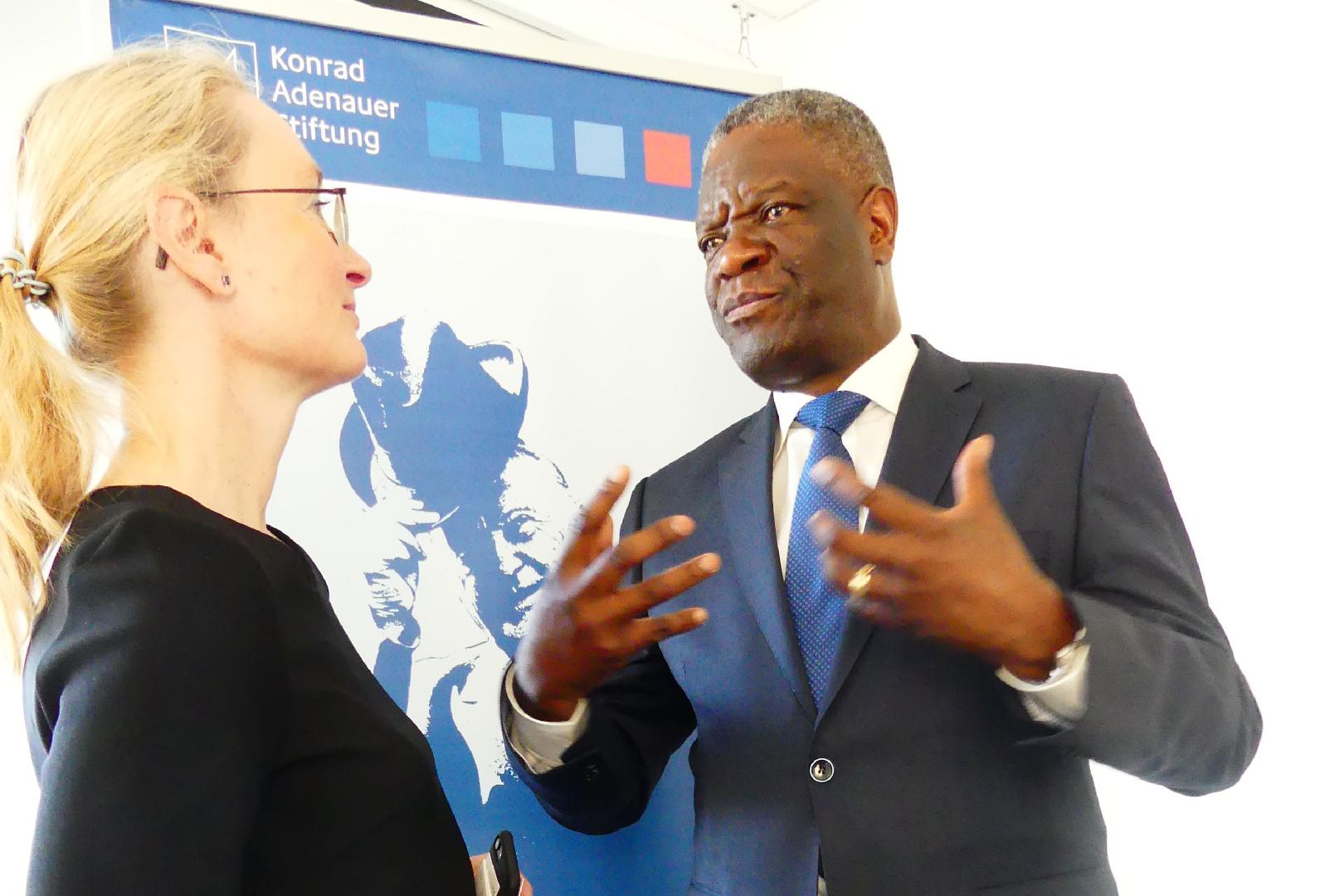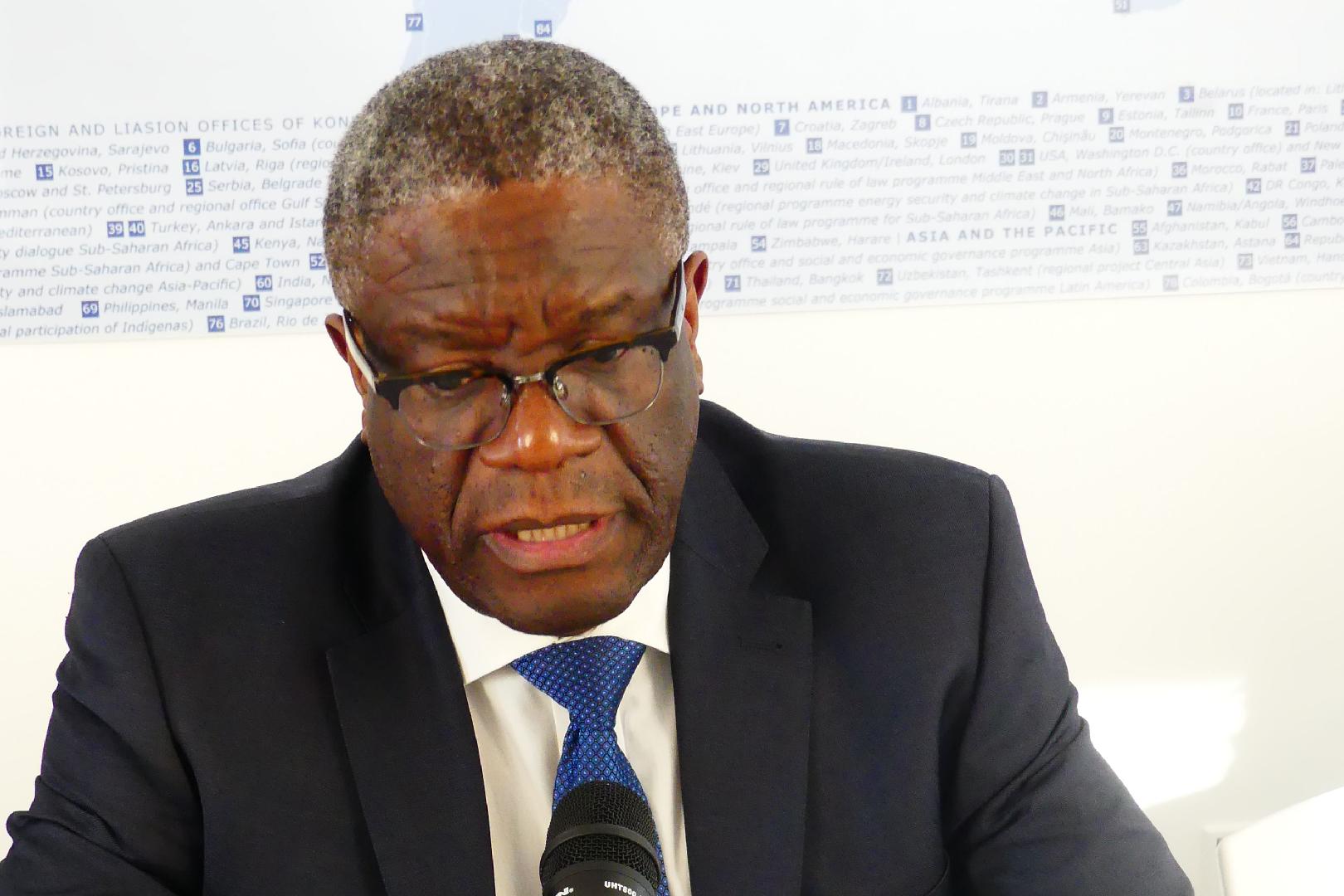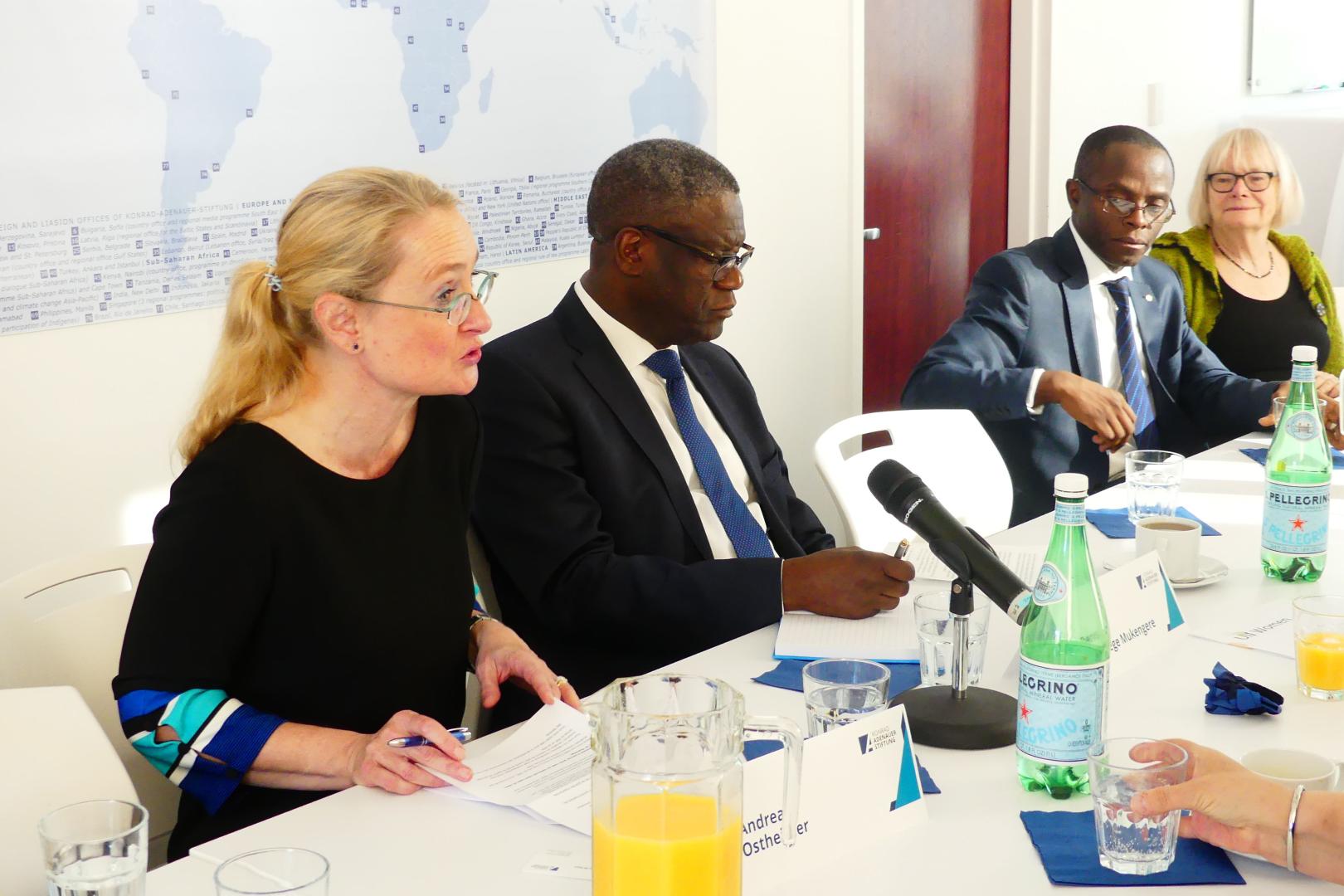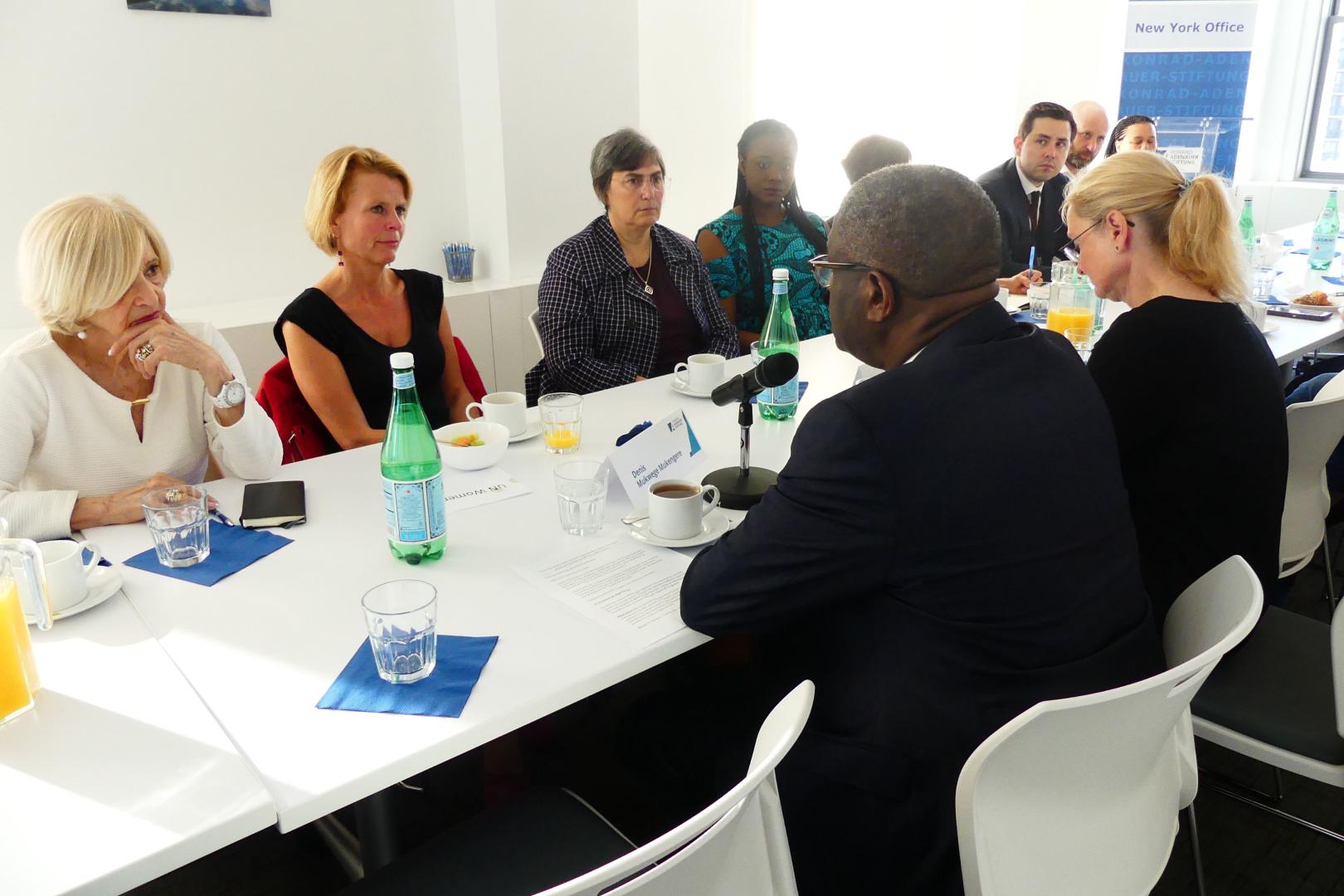The previous day, Dr. Denis Mukwege[1], had briefed the Security Council - under German presidency - about the necessity to fight impunity of perpetrators and the need for an holistic assistance to victims of sexual violence in conflict. Germany, during its current non-permanent seat has given the subject of Women, Peace and Security priority on its agenda. Thus, it introduced on that occasion a resolution addressing sexual violence in armed conflict (UNSCR 2467) which 13 member states finally voted in favor (Russia and China abstained).
In his introductory remarks in the discussion with civil society, Dr. Mukwege referred to the Security Council’s session’s specific dynamics as well as overall global developments. Currently, more than ever, he sees the necessity to defend and fight for freedom, democracy and human rights. For him, who briefed the Security Council for the second time, it was sobering to notice that language has changed, but that certain members of the Security Council still insist that the Council remains within a strict interpretation of his mandate. He further emphasized that sexual violence is not only an act of terror destroying individuals, but also shatters families and undermines societies. Hence, for him sexual violence in conflict is a topic which belongs on the Security Council’s agenda. Member States as well as civil society actors have to stay vigilant and lobby so that this continues to be so in the future. Unfortunately, it can be observed in recent times that well-established democracies contribute to weakening institutions that strengthen democracy and human rights (the visa-ban of the US for ICC prosecutor Fatou Bensouda) and dismantle instruments to fight impunity.
Dr. Mukwege sees the biggest challenge in fighting impunity in the collection and preservation of evidence. Successfully communicating victims’ rights to individuals and ensuring their access to the judicial system are important elements against impunity. For far too long could perpetrators rely on the victims’ silence. However, the preservation of evidence poses the most serious problem as the judicial process is based on it. While there is often proof for sexual violence, the perpetrator cannot be identified. There is a need for new ideas of how the legislature and judiciary can address this problem. In cases where the perpetrator is known, Dr. Mukwege urges, that the international community has to ensure that a sanctions regime is established.
Dr. Mukwege encouraged civil society to pro-actively shape the mandate of an international fund for reparations to victims of sexual violence. This fund could entail not only aforementioned individual payments but also collective and symbolic compensation. In this context he also cautioned that many countries, because of their own past, fear that such a fund could open Pandora’s Box. Thus, civil society needs to engage and convince in order to minimize resistance.
Given his own experiences in Eastern Congo, Dr. Mukwege stresses that during peacebuilding efforts and security sector reforms, perpetrators should not become the new “protectors” of victims. Civil society needs to lobby for far reaching vetting procedures.
The Nobel Peace Laureate sees civil society organizations, especially local grass-roots organization as important partners in the fight against impunity. Only through them information of human rights violations can be gathered, victims are sensitized to their rights and the international community can be continuously reminded that sexual violence as a weapon of war in conflicts is a violation of peace and security.
[1] Doctor and Founder of the Panzi Hospital in east Congo, which specializes in the treatment of victims of sexual violence in conflict.
Topics
About this series
The Konrad-Adenauer-Stiftung, its educational institutions, centres and foreign offices, offer several thousand events on various subjects each year. We provide up to date and exclusive reports on selected conferences, events and symposia at www.kas.de. In addition to a summary of the contents, you can also find additional material such as pictures, speeches, videos or audio clips.








You need to sign in in order to comment.